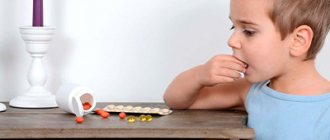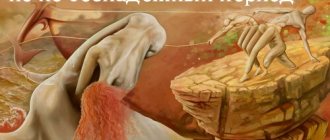Alcohol has poisonous impact on the body even in case of one-time use. Systematic consumption of alcohol, when a person goes on a drinking binge, causes enormous harm to the health and psyche of the individual. Moreover, being in a state of prolonged intoxication, an alcoholic poses a serious threat to others, especially to his loved ones. There is only one way to get out of binge drinking on your own - stop drink. To resist another portion of strong drinks, you need to do it correctly.
What is real binge drinking?
Periodically, on the occasion of holidays, many people consume alcohol, but this is not binge drinking. Also, dipsomania when, due to long holidays, a person drinks alcohol for several days in a row, but then stops doing it independently and consciously, since the celebrations are over, he needs to recover and go to work, get behind the wheel. This state can also be called pseudo-binge.
You can distinguish a real binge by the following signs :
- the person is drunk and continues to drink for several days in a row;
- he cannot stop drinking alcohol on his own, refuses with difficulty or cannot at all;
- the longer the binge lasts, the worse the physical and mental state;
- the person has a severe hangover syndrome, which can only be eliminated by taking another dose of alcohol;
- tolerance to alcohol is observed: in order to achieve a state of intoxication, the addict takes drinks in larger and larger quantities.
The main difference between a real binge is that a person himself cannot stop . The craving for alcohol occurs spontaneously, without any reason. Before a binge, the state of an alcoholic changes greatly: he is in a bad mood, he is gloomy, he does not want to do anything or talk to anyone. Then he breaks down and goes on a drinking binge for several days or a month.
Psychological dependence on alcohol consumption
For the development of alcoholism, internal prerequisites are needed. Alcohol is a poison, and the body reacts painfully to it at first. What, then, makes a person drink alcohol, because it cannot be called tasty? What makes you overcome your natural fear of developing alcohol addiction?
The psyche sees such great advantages in use that a person begins to neglect safety and suffers some inconveniences. But he can quickly relieve tension, relax, get euphoria, and forget about failures. Is this necessary for a person whose life is happy, full of pleasant communication, and whose career is at its best? Most likely no. Therefore, we can say that people who have problems building personal and social relationships are at risk for developing a psychological attachment to alcohol.
Fears, tightness, complexes, and lack of effective communication skills are observed in most people. This is why various types of chemical addictions are so common, especially alcohol addiction.
What are the dangers of binge drinking?
Ethyl alcohol is poison. Once in the body, it is carried by the bloodstream to all organs. It primarily affects the liver, kidneys, brain, and heart. The larger the dose of alcohol, the more often the intake is repeated, the more severe the intoxication . The body can cope with small and only periodic doses of ethanol, but a constant “load” disables many organs and systems. The problem with long-term drinking bouts is that attempts to stop drinking alcohol cause suffering in the form of withdrawal syndrome, which occurs 6-12 hours after withdrawal.
This is a difficult test, which is accompanied by the following symptoms :
- severe headache, dizziness;
- nausea, vomiting, it can be frequent and repeated;
- fever, chills, hand tremors;
- anxiety, depression.
These consequences of binge drinking can be eliminated at home using improvised means. In some cases, you need to act immediately and call an ambulance.
This is necessary if:
- a person experiences convulsions;
- heart problems arise, arrhythmia begins, blood pressure rises sharply;
- the patient loses his mind;
- The behavior is completely strange, hallucinations begin.
This is called delirium tremens or delirium tremens. This condition requires qualified medical care . Without drug therapy, it can cause respiratory arrest or stroke.
Consequences and complications of alcohol withdrawal
We have already said that alcoholism affects absolutely all organs. With withdrawal syndrome, the body works for wear and tear. All chronic diseases worsen, blood pressure rises sharply, and the heart works to the limit.
Among the consequences, one should note physical injuries as a result of confusion, acquired hypertension, dilatation of the heart ventricles, mental disorders, and mental degradation.
Complications of withdrawal syndrome include alcoholic encephalopathy, pre-stroke and pre-infarction conditions, thrombophlebitis and deep vein thrombosis, memory loss, dysfunction of the central nervous system, and dementia.
Three conditions for successfully quitting binge drinking
You shouldn’t think that it’s easy to get out of binge drinking. This is physical and psychological suffering that is very difficult to overcome alone. Those who have already gone through this condition speak about this in reviews.
To break the sequence of “drinking-hangover-drinking” you need:
- Psychological mood. Motivation is important to prevent relapse. If an alcoholic does not want to quit the binge, then he will not be able to do it on his own. In this case, forced withdrawal from binge drinking will be required with the involvement of a narcologist. But in general, whether to continue treatment or not should be decided by the patient himself.
- Help . Since a person feels unwell due to withdrawal symptoms and becomes depressed, the support and faith in the success of his loved ones is very important.
- Facilities . Folk remedies are mainly used to break binge drinking at home. They are suitable for an alcoholic with not too much experience. Otherwise, it will be difficult to manage without medications.
To eliminate withdrawal symptoms, it is important to know what can and should be done to alleviate your condition, and what is not recommended, so that it does not get worse.
Literature:
- Sturov N.B. General characteristics of alcohol withdrawal syndrome. / Magazine “Difficult Patient” 2008
- Vasiliev D.V. On the issue of intensive therapy of withdrawal syndrome in patients with alcohol dependence. / Journal “Medicine and Ecology” 2011
- Beketova S.M. Clinic and treatment of alcohol withdrawal syndrome. / Medical Journal of Western Kazakhstan, 2008
- Ulyanova O.V. Modern approach to the treatment of alcohol withdrawal syndrome. / Tauride Journal of Psychiatry, 2018
How to get out of binge drinking easier
To get out of a heavy, long-term binge, you don’t need to do it suddenly, otherwise you can provoke “delirium tremens.” It is better to gradually reduce the dose of alcohol, while at the same time trying to rest more and restore the body.
To do this you should:
- Drink as much fluid . It will begin to remove ethanol and its breakdown products, due to which the poisoning of the body will decrease. You can drink mineral water, juices, fruit drinks, compotes, and alternate them. Black or green tea is also useful; you can add honey and lemon to it. Herbal teas made from mint, chamomile, and lemon balm have a good effect on the body.
- To get rid of a headache, you should take painkillers , for example, No-shpu. There is no point in enduring pain.
- If severe nausea and vomiting is observed, it can be eliminated with Cerucal .
- To cleanse the liver and gastrointestinal tract, you need to take sorbents. Any one to choose from will do: Smecta, activated carbon, Enterosgel, Atoxil, etc. The dosage must be followed according to the instructions.
- If you suffer from insomnia , then the drug Donormil will reduce it.
- To suppress cravings for alcohol, you can take glycerin diluted with boiled cold water in a ratio of 1:2.
All medications must be taken at least 24 hours after the last drink. The exception is sorbents; you can start using them immediately.
Work on your sober life
To learn to live soberly and get pleasure and joy at the same time, you need to:
- change your lifestyle: fill it with new meaning, positive emotions and impressions;
- to refuse from bad habits;
- change your attitude towards people and their behavior;
- bring harmony to all areas of life;
- learn to cope effectively with stress.
Only comprehensive work on yourself and your life can give positive results and help in overcoming difficulties.
What not to do to avoid harm
Doctors do not recommend blindly following all the advice and trying any techniques on yourself.
Even seemingly harmless remedies can significantly worsen the condition:
- Contrast showers are prohibited . Due to prolonged drinking, the blood becomes quite thick, which is why it is already difficult for the blood vessels, and a sharp change in temperature increases the risk of heart attack and stroke. You can only take a regular warm or slightly cool shower. Hot baths and saunas are also prohibited.
- Physical is not recommended . They also increase the stress on an already weakened heart. You can practice light breathing exercises, take leisurely walks in the fresh air, and relieve trembling in your arms and legs with massage.
- If possible, you should quit smoking or at least reduce the number of cigarettes to a minimum.
- Doctors do not recommend taking Corvalol or Valocordin; in severe withdrawal symptoms, they can provoke a coma.
Relieving withdrawal symptoms in alcoholism
Moderate and severe withdrawal syndrome can only be relieved by a specialist narcologist!
If abstinence does not go away within 24 hours, then it is necessary to call drug treatment. The specialist will make an accurate diagnosis after examining the patient and prescribe treatment. As a rule, this is detoxification of the body through an IV and a complex of supporting medications. The doctor will also tell you about methods of further treatment, since alcoholism is a complex disease that cannot be gotten rid of with a drip.
How not to end up in delirium tremens
This is the most terrible consequence of binge drinking, when, due to the cessation of drinking alcohol, hallucinations, delirium, and convulsions occur. Delirium is characteristic of the later stages of alcoholism; it can lead to death; more often, the danger arises due to the violent, “crazed” state of the alcoholic. In delirium, he can seriously harm himself.
In such severe cases, it is necessary to adhere to the rule of gradualness :
- You can’t just stop drinking alcohol, you need to gradually reduce the amount you drink.
- Little by little you need to increase the intervals between drinking alcohol. This way the body will begin to recover, and the symptoms of withdrawal symptoms will be mitigated.
- Another effective technique is to dilute alcohol with water more and more: the volume of liquid drunk will be the same, psychologically familiar, and the concentration of ethanol and its harm will begin to decrease.
In addition to these methods, it is worth adding sorbents ; they will not allow ethanol to be completely absorbed. If there is a threat to life, you must seek medical help - call a narcologist at home to help you break the binge and eliminate a severe hangover.
General principles of formation
The mechanism of development of alcohol withdrawal involves several stages that follow one after another:
- Formation of mental dependence. In 95% of cases, alcohol is the remedy that creates a feeling of escape from problems, gives self-confidence, and relieves fears and complexes.
- A combination of “alcohol and pleasure” is built in the psyche. By drinking, a person receives that psychological comfort that was unavailable to him in a sober state.
- Development of physical dependence. Over time, ethyl alcohol becomes part of the metabolism, and its breakdown products accumulate. In addition, there is a tendency to increase the doses consumed, as the usual dosages no longer give the desired effect.
- The appearance of withdrawal symptoms after trying to stop drinking.
Abstinence , as a rule, develops after systematic drinking for 2-7 years. With such experience we are talking about stage 2 of alcoholism, with the formation of stable tolerance to ethanol. With systematic severe drunkenness, withdrawal syndrome can occur after 1-1.5 years of addiction. The situation is aggravated by factors such as early onset of abuse and hereditary predisposition to alcoholism.
How to eat to make it easier to get out of binge drinking
Alcohol intake negatively affects the gastrointestinal tract: leads to gastritis and ulcers. In case of withdrawal, do not put a lot of stress on the stomach and intestines. The first few days after binge drinking, food at home should be light and healthy: nothing fatty or fried.
What doctors recommend to use:
- The first 1-2 days, brine (from cabbage, cucumbers, tomatoes). It is rich not only in sodium, but also in other useful microelements, normalizes the blood and its salt composition. Also, brine will awaken your appetite and reduce nausea.
- Fermented milk drinks are useful throughout the recovery period: kefir, fermented baked milk. The lactic acid they contain promotes the removal of ethanol metabolic products. The beneficial microorganisms in fermented milk drinks will improve your intestinal health.
- Fresh fruits, especially citrus fruits, will have a positive effect in case of alcohol addiction, because they contain a lot of vitamin C. You can also drink rosehip decoction to replenish it.
- When your appetite awakens, you should add porridge to your diet - simple, lean, boiled in water. You can eat oatmeal or barley.
On the second or third day (depending on how you feel), you need to introduce broth : fish or chicken. This dish will quickly restore strength.









